The Fintech industry is made up of companies that provide technologies to improve and reinvent financial service solutions. The goal of such businesses is to make financial reporting processes easier, faster, and more efficient. Fintech is typically thought of as a limited-service with a large number of various financial technology solutions.

Fintech has been driving trends in the wealth management
industry, thanks to the emergence of e-trading and online banking. But owing to
recent advances, wealth management – like every aspect of the modern finance
world – is currently experiencing profound disruption.
Wealth managers have traditionally provided a wide range
of professional financial services, ranging from investment advising to general
financial planning. These multi-skilled advisors basically help people manage
their portfolios and finances. Fintech - the application of technology
in the financial sector, is now making an impact on the investment asset
management industry by developing digital solutions. However, this shift
signals the new potential for wealth management in the future.
In this blog, we have captured the insights shared by Mr.
Abhijit Bhave, CEO of Fisdom Private Wealth, Mr. Vikas Sachdev, and Mr. Sachin
Shah of MK Investment Managers, during the 2nd episode of the Emkay Alpha
Mavens video series.
Emkay Alpha Mavens is an informative series that brings
out valuable insights on Wealth Management straight from experts in the
industry. We, PMS Bazaar, are presenting the 2nd Season of this insightful
video series in partnership with Emkay Investment Managers Limited.
In this session, they discussed about Fintech and how it
has captured the imagination of many financial services firms looking to
leverage differentiating technology to accelerate their innovation.
According to Mr. Bhave, “Fintech is a kind of business that tries to solve problems. So we have
to first identify what are the problems that the clients are facing or it may
be the case the clients don't even know that they are facing problems”. Mr.
Bhave identifies four such problems which are known as the four Cs that need to
be resolved. These four Cs are – Correctness of advice, cost, convenience, and
control
The first is correctness of advice, which is unbiased
advice using the latest research tool without focusing on revenue from the best
talent in the industry. The correct advice comes through knowledge and experience
that happens through research by wealth managers. Also, another important thing
is wealth managers must not solely focus on revenue targets. So once you take
out revenue targets from the wealth manager, his/her priority will always
remain customers.
Next is the pricing or cost problem. Many wealth
managers have been doing regular plans in mutual funds as well as in PMS and
AiFs. Regular plans are those mutual fund plans that are bought through an
intermediary. These intermediaries can be brokers, advisors, or distributors.
The intermediaries charge the fund house a certain fee for selling their mutual
funds. The AMCs usually recover this fee through expense ratio. There is also an
AMFI campaign that talks about direct plans. Direct Plans are for those who
prefer to invest directly in a mutual fund scheme without the help of any
distributor/agent. Direct plans have lesser costs and give higher returns than
regular plans. Over a sufficiently long investment horizon, the difference in
returns can be substantial. However, you need to have some investment
experience and knowledge to invest in direct mutual fund plans.
However, Mr. Bhave is a proponent of passive investments
and according to him, passive investments can be better than active
investments. Active investing requires a hands-on approach, typically by a
portfolio manager or other so-called active participant. Passive investing
involves less buying and selling and often results in investors buying index
funds or other mutual funds.
Mr. Bhave says, “For
any clients who come in with an investment of one crore we offer advisory service
only which means advisory service for direct plans not just of mutual funds but
we are tying up with all the manufacturing companies of PMS and AIFS trying to
do direct plans for PMS and AIF”. This is where the cost will drastically
go down and it's not about the cost, if for example say invest 100 rupees and then
he/she save one/two rupees. Therefore, compounding gives a higher return.
The next C is
convenience. When you talk about convenience you talk of technology but at the
same, you also talk of a “fidgetal model”. That is convenience here means both fidgetal
model and technology available to clients. Any client needs both technology as
well as a Relationship Manager (RM). Fisdom was the first organization that on
its app allowed signature with the finger for mutual fund KYC. PMS requires
30-50 physical signatures now which is not convenient by any standards for
clients. Hence, Fisdom is working on a technological platform where it will be
only one wet signature (any signature affixed to a hard copy with a pen or
other writing device) for PMS, and for AIF
there will be zero wet signatures.
So, what is the fidgetal model that we are talking
about? According to Mr. Bhave, “when we
talk about the fidgetal model, we talk about the 4t framework, which means
“talent plus technology with transparency equals trust”. When you ask an
HNI client what does he expect from his wealth manager, the answer would be – “a
wealth manager who does not have targets and a wealth manager who knows more
than the client”.
So knowledge, wisdom, and experience - that's talent and
that's important especially when clients are investing crores of rupees. And along
with talent, we need technology. In addition, clients also need the trust of
wealth managers so that they are comfortable investing their money. So a
combination of technology, talent with transparency leads to trust and this is
what we call the fidgetal model.
Control over the portfolio is where the client gets a
consolidated view of reports in mobile and Web apps, and the facility to
compare products like PMS, MFs, and ULPs. While a client would depend a lot on
any advisor, they also would want to do certain things without any advisor at
different points in time. In Fintech, there's this phrase called the
democratization of information.
Democratization of information means that we extend the
power of business information that's created by the people, to the people. This
means if you can't google for the information you'll have to still have it in
some way. Hence, Fisdom is working on something where clients have a certain
control on information where across all mutual funds all PMS products, AIFs,
unit link plans, etc., clients can actually do a dropdown comparison for
themselves and form their own opinion related to investing.
So talking about the fidgetal model, the question might
arise do HNIs whose age range above 55 are able to understand, are tech-savvy
enough to understand the model, and avail of the sort of insights that Fisdom
is trying to give through this fidgetal model?
According to Mr. Bhave, “technology does not depend on age but the interest to learn. It's about
learning -you learn you, enjoy, you use it. So most older HNIs are able to
understand technology. Nevertheless, today the average HNI age ranges from 35
to 55 who are actually open to change, and some may not be. These
are the people who are creating more and more wealth but they don't have time
and that's where technology helps. You can just use an app or use a web app and
do your transactions very fast. You can do a quick WhatsApp video call and do a
transaction fast. So, I don't think it's really about the age for technology
usage”.
Next, is the role of wealth managers. When we talk about
the democratization of information and investors having control over
information and knowing many things, the question arises, is if investors know
enough, would they need wealth managers or investment advisory to help them
invest their wealth? Especially, since some investors may feel that now that
they have been guided enough by wealth managers, they have enough knowledge and
with this knowledge, they can directly invest rather than go through
intermediaries.
Mr. Bhave says, “Not
all investors have the time to invest or sit down and select stocks. For most
HNIs their time is important. The time that spend selecting a stock or a PMS or
a mutual fund they can spend that time in their manufacturing plant they will
enjoy. They will create more wealth. As far as investment is concerned, there
is a need for somebody who is a subject matter expert, whom they can trust who
will be client-centric and who will help them achieve their financial goals.
So yes there is a need for wealth
managers”.
Now coming to the cost, the cost for an investor should
be seeing that the wealth manager is adding value and that is when you know the
investor will be more in tune in terms of subscribing to the services of a
wealth manager. Investors would be willing to pay more if he/she gets used to a
particular service, and it goes from beyond customer satisfaction to customer
delight and the customer enjoys that particular service for the value. But it
is important that the wealth manager must create the value, show the value, and
if the customer enjoys the value then he/she would be willing to pay, and over
a period of time, the wealth manager can see profitability which will come
because of volume.
Finally, what is the future of the wealth management industry and the traditional wealth management industry? Up until a decade ago, the wealth management industry was relatively resistant to technology. The years since have seen more enthusiasm and implementation, but Fintech innovation in wealth management is still in the early stages. However, the wealth management industry can no longer ignore the rise of Fintech.
If this article has whetted your appetite for more, relive the entire session with the recording of the session appended below:
Get access to rich data and analytics of PMS & AIF by subscribing to us. Join the 35000+ investors & experts now: Subscribe NOW
Recent Blogs

January Rout, Extreme Dispersion: PMS Returns Swing From Losses to Gains
Benchmark falls deepened losses, but multi-asset and debt cushioned portfolios meaningfully
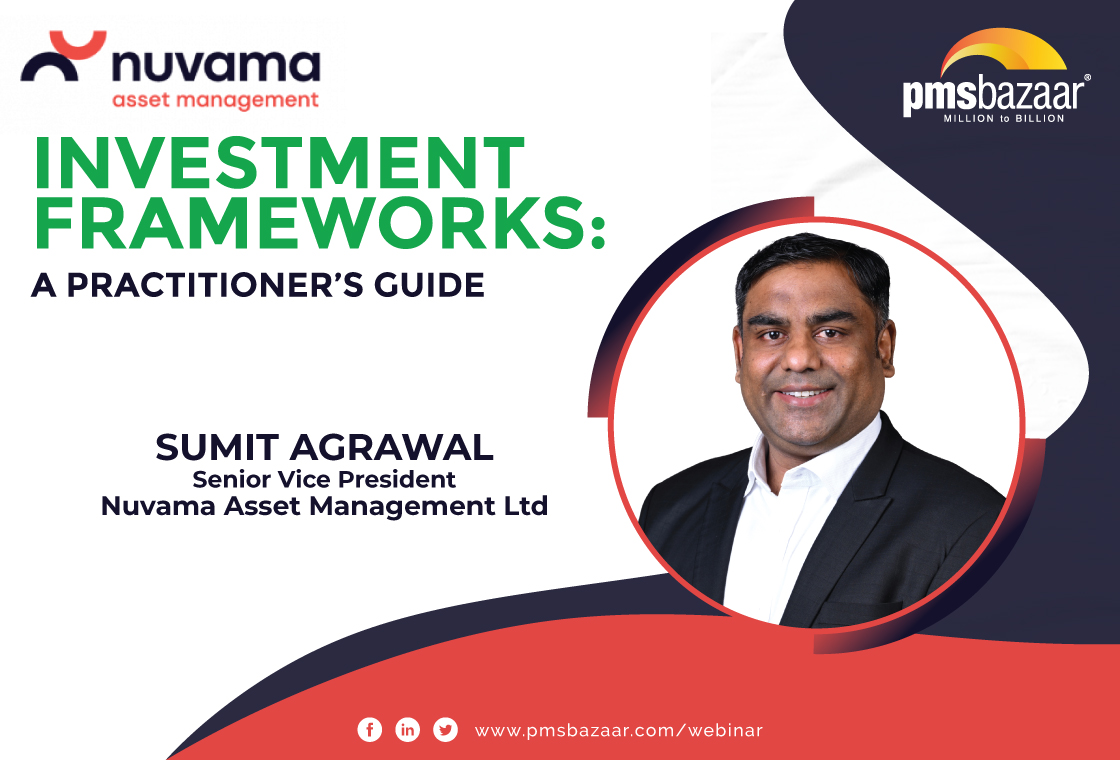
Investment Frameworks : A Practitioner’s Guide
PMS Bazaar recently organized a webinar titled “Investment Frameworks: A Practitioner’s Guide,” which featured Mr. Sumit Agrawal, Senior Vice President, Nuvama Asset Management Limited. This blog covers the important points shared in this insightful webinar.
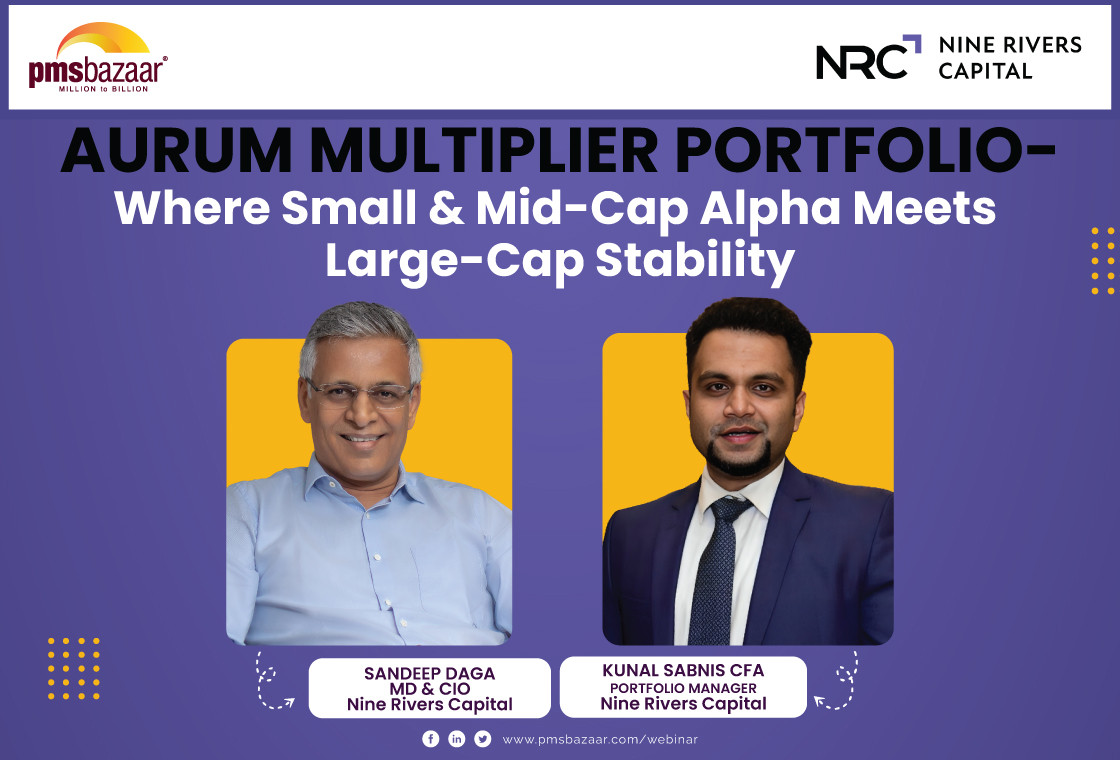
Aurum Multiplier Portfolio - Where Small and Mid-Cap Alpha Meets Large-Cap Stability
PMS Bazaar recently organized a webinar titled “Aurum Multiplier Portfolio - Where Small and Mid-Cap Alpha Meets Large-Cap Stability,” which featured Mr. Sandeep Daga, MD& CIO, Nine Rivers Capital and Mr. Kunal Sabnis, Portfolio Manager, Nine Rivers Capital. This blog covers the important points shared in this insightful webinar.
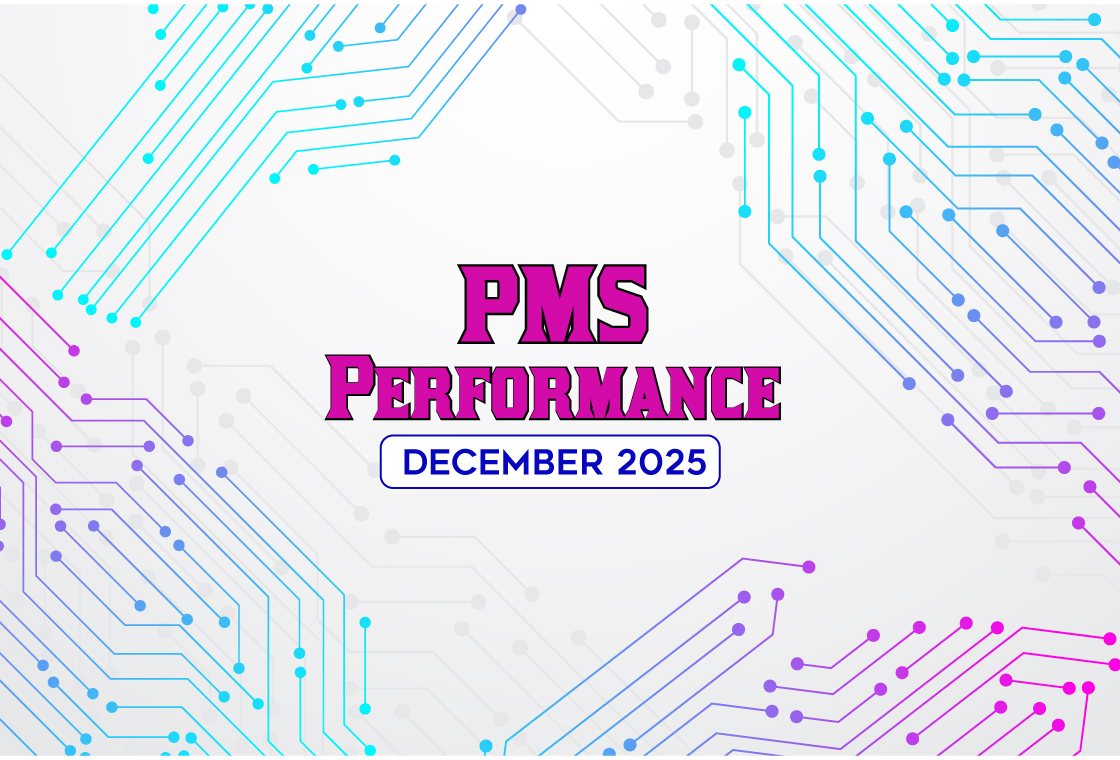
Flat Markets, Wide Outcomes: How 484 PMS Strategies Performed in Dec 2025
December 2025 was a month where market returns stayed close to flat, with the Nifty 50 TRI at -0.28% and the BSE 500 TRI at -0.24%.
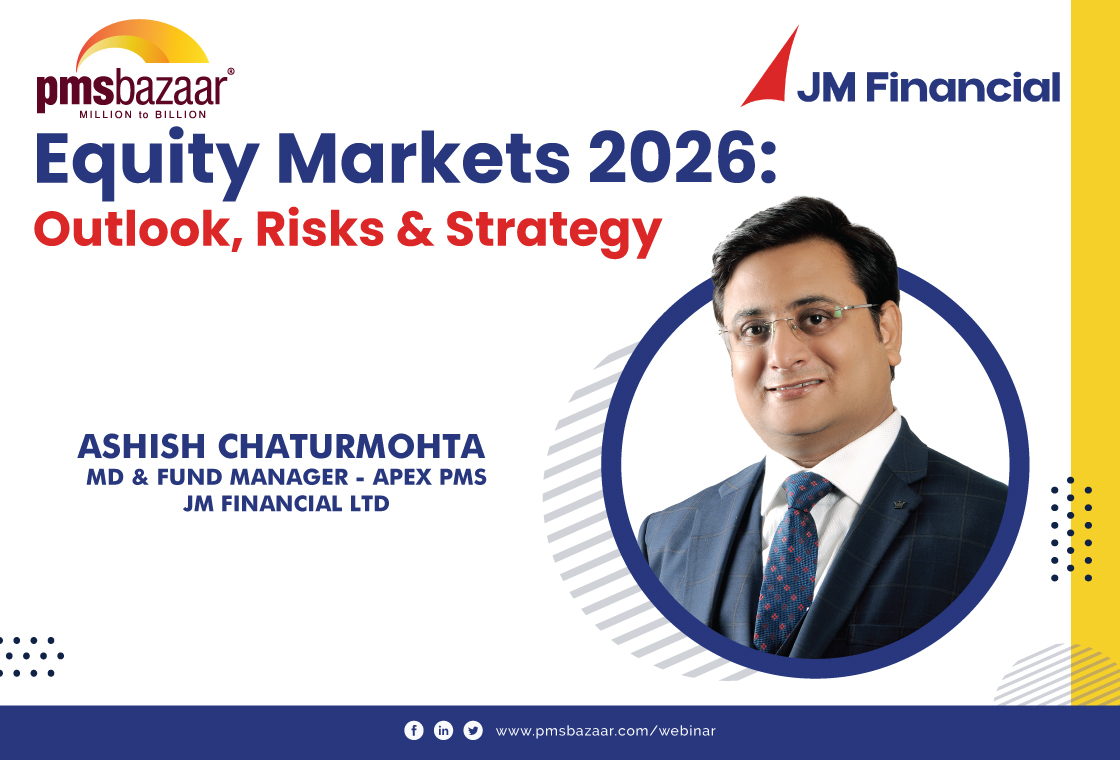
Equity Markets 2026: Outlook, Risks and Strategy
PMS Bazaar recently organized a webinar titled “Equity Markets 2026: Outlook, Risks and Strategy,” which featured Mr. Ashish Chaturmohta, MD & Fund Manager – APEX PMS, JM Financial Limited. This blog covers the important points shared in this insightful webinar.

MICRO CAPS: The Dark Horses of the Indian Equity Market
PMS Bazaar recently organized a webinar titled “MICRO CAPS: The Dark Horses of the Indian Equity Market,” which featured Mr. Rishi Agarwal and Mr. Adheesh Kabra, both Co-Founders and Fund Managers, Aarth AIF. This blog covers the important points shared in this insightful webinar.
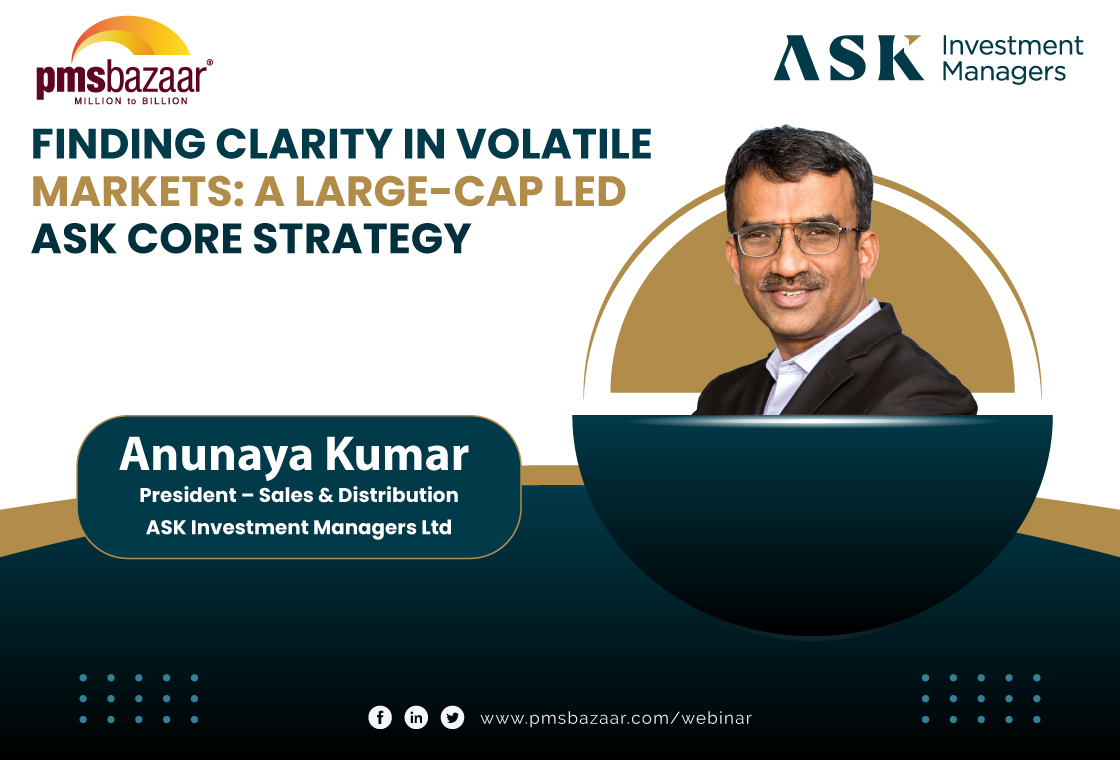
Finding Clarity in Volatile Markets: A Large-Cap Led ASK CORE Strategy
PMS Bazaar recently organized a webinar titled “Finding Clarity in Volatile Markets: A Large-Cap Led ASK CORE Strategy,” which featured Mr.Anunaya Kumar, President – Sales and Distribution ASK Investment Managers Limited. This blog covers the important points shared in this insightful webinar.
.jpg)
Passively Active Investing — A Modern Investor’s Lens on ETF-Based PMS
PMS Bazaar recently organized a webinar titled “Passively Active Investing — A Modern Investor’s Lens on ETF-Based PMS,” which featured Mr. Karan Bhatia, Co-Founder and Co-Fund Manager , Pricebridge Honeycomb ETF PMs. This blog covers the important points shared in this insightful webinar.

